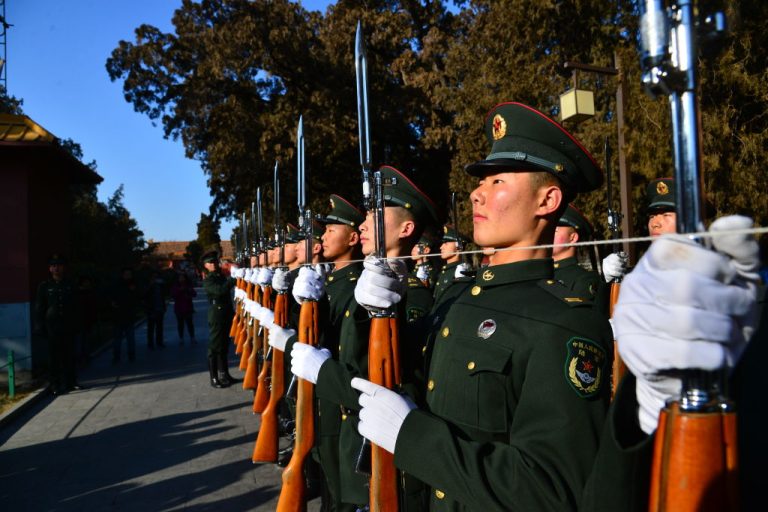Chinese leader Xi Jinping has torqued his control over the military a further notch with new rules that oversee the social lives of “leading cadres.”
The Chinese Communist Party (CCP) made the edict a matter of public record when the front page article of the PLA Daily on June 18 broadcast a set of “specific requirements and concrete demands in eight areas” approved by the Central Military Commission, of which Xi is Chairman, South China Morning Post reported.
However, the Party’s military newspaper didn’t elaborate on the content of the “eight areas”
The PLA Daily, a messaging platform for the People’s Liberation Army, warned, “Political and disciplinary bodies will carry out their supervisory responsibilities, look out for and correct any problems that are in violation of the rules or the law.”
It continued that the Party’s enforcement arms intend to “hold any of the leading cadres” charged with “dereliction of duty” accountable for the purpose of reforming “a strong sense of party spirit among them” so that they can lead “a clean social life publicly, and among their families and friends.”
Success
You are now signed up for our newsletter
Success
Check your email to complete sign up
The outlet summarized that the new mandate broadly controls how ranking officers are permitted to interact with a number of levels of Chinese society, all the way from CCP officials and state-owned enterprises to ethnic minority and religious groups, and even their family and social media interactions.
But the missive most pointedly targeted “their social life,” stating it is to “be principled, has boundaries and is based upon rules.”
The Post quoted Shanghai University of Political Science and Law political science professor Ni Lexiong as stating that the move to “have a set of codes on social life for the senior cadres” was “unprecented.”
The outlet also paraphrased an unidentified source within the PLA as explaining that the mandates will also put a halter on retired generals “who are known to wield considerable influence over the younger leaders.”
The source was directly quoted as alluding to a reality where the new mandates be another move in Xi’s tenured anti-corruption campaign: “Many retired generals are active in religious and cultural groups, and their presence in these bodies can sometimes be used by others for profiteering, creating very bad social effects.”
The South China Morning Post interviewed Zhou Chenming, a member of Yuan Wang, a military “think tank” headquartered in Beijing, who said that the new rules directly took aim at the “legacy” of former generals Guo Boxiong and Xu Caihou, who were purged in Xi’s campaign in 2013.
Guo and Xu, among others, “all used their positions to accumulate massive wealth and profited from the expanding Chinese organ transplant industry, which is concentrated in state- and military-run hospitals.” They were acolytes of former CCP head and architect of the persecution and organ harvesting of Falun Gong meditation, Jiang Zemin, who died last Nov. 30.
Guo and Xu were often referred to in anti-corruption campaign rhetoric as “tigers,” a term that includes many other high ranking Party officials and PLA officers who have been targeted for elimination.
The “tigers” moniker also stands in contrast to “flies,” which encompasses “rank-and-file functionaries accused of abusing their positions to enjoy ill-begotten wealth or favors,” Vision Times reported in October 2022 when Xi was granted a third term as leader of China.
Guo Baoxiong was sentenced to life in prison in 2016, BBC reported citing information from CCP broadcaster Xinhua, which added that the then-74-year-old’s personal assets had been seized and his rank and title dissolved.
In 2015, The Guardian reported that the same PLA Daily had denounced Xu Caihou as a man who lived a “pathetic and shameful life” after dying “under supervision” at the age of 71 from an illness he contracted in 2013 before he could stand trial.













